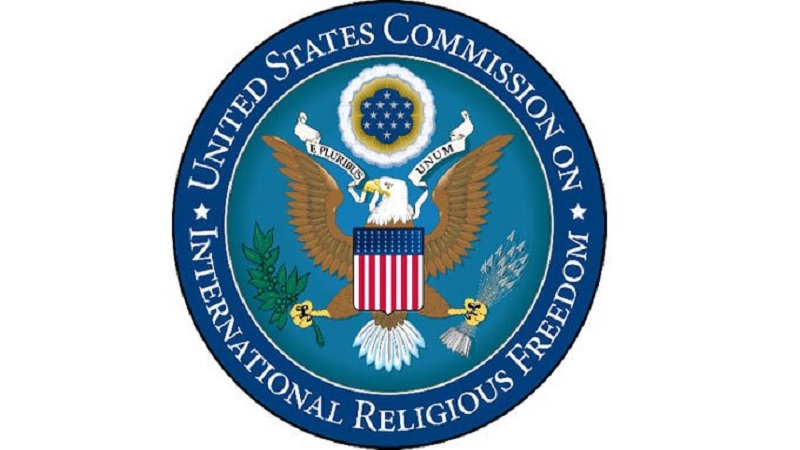 Image Courtesy:telanganatoday.com
Image Courtesy:telanganatoday.com
The United States Commission on International Religious Freedom (USCIRF) has released its Annual Report for 2020 that paints a bleak picture of how India is treating her religious minorities. The document that includes recommendations for US Policy minces no words and assigns the blame squarely on the ruling regime.
The report says, “In 2019, religious freedom conditions in India experienced a drastic turn downward, with religious minorities under increasing assault. Following the Bharatiya Janata Party’s (BJP) re-election in May, the national government used its strengthened parliamentary majority to institute national level policies violating religious freedom across India, especially for Muslims. The national government allowed violence against minorities and their houses of worship to continue with impunity, and also engaged in and tolerated hate speech and incitement to violence.”
The report sites the enactment of the Citizenship Amendment Act (CAA) as the first official enabler of a culture of discrimination by identifying it as a means to restore the citizenship of non-Muslims. It mentions how the National Register of Citizens (NRC) that was recently conducted in the state of Assam left out a large number of Hindus thereby prompting the enactment of the CAA. Openly naming Union Home Minister Amit Shah as a key player, the report says, “When the statewide NRC was released in August, 1.9 million residents—both Muslims and Hindus—were excluded. Those excluded live in fear of the consequences: three United Nations (UN) Special Rapporteurs warned that exclusion from the NRC could result in ‘statelessness, deportation, or prolonged detention.’ Indeed, Home Minister Amit Shah referred to migrants as ‘termites’ to be eradicated. Troubled that Hindus were excluded from Assam’s NRC, he and other BJP officials advocated for the CAA as a corrective measure to protect Hindus. The CAA provides listed non-Muslim religious communities a path to restore their citizenship and avoid detention or deportation. In its wake, BJP leaders have continued to advocate for a nation-wide NRC; the citizenship of millions would be placed under question, but, with the CAA in place, Muslims alone would bear the indignities and consequences of potential statelessness.”
The report then goes on to discuss the nationwide anti-CAA protests and the subsequent attacks on the protesters and the specific targeting of Muslims, especially by Yogi Adityanath’s government in Uttar Pradesh. It squarely blames the central government for creating “a culture of impunity for nationwide campaigns of harassment and violence against religious minorities.” Apart from the CAA, the report also points out instances such as the Babri Masjid judgment, revocation of autonomy of Jammu and Kashmir, mob lynchings and the continued enforcement of cow slaughter and anti-conversion laws, as examples of government action in this regard.
Once again it held the Home Minister accountable for his actions when it came to mob lynchings saying, “In 2018, the Supreme Court urged the central and state governments to combat lynchings with stricter laws. When, by July 2019, the central government and 10 states had failed to take appropriate action, the Supreme Court again directed them to do so. Rather than comply, Home Minister Shah called existing laws sufficient and denied lynchings had increased, while the Home Ministry instructed the National Crime Records Bureau to omit lynchings from the 2019 crime data report.”
It also minced no words when it came to the anti-Muslim violence in Delhi earlier this year, saying, “In February 2020, three days of violence erupted in Delhi with mobs attacking Muslim neighborhoods. There were reports of Delhi police, operating under the Home Ministry’s authority, failing to halt attacks and even directly participating in the violence. At least 50 people were killed.”
The report also mentions how Christians have been targeted across India. It says, “Violence against Christians also increased, with at least 328 violent incidents, often under accusations of forced conversions. These attacks frequently targeted prayer services and led to the widespread shuttering or destruction of churches.”
USCIRF then goes on to recommend that the US Government not only designate India as a Country of Particular Concern (CPC), but also “impose targeted sanctions on Indian government agencies and d officials responsible for severe violations of religious freedom by freezing those individuals’ assets and/ or barring their entry into the United States under human rights-related financial and visa authorities, citing specific religious freedom violations.”
The entire report on India may be read here:
This is not the first time USCIRF has raised concerns about religious freedom in India in the recent past. In December 2019, it had sought sanctions against Amit Shah and in February 2020, it had raised concerns about the government’s failure to check the brutal and unchecked violence in Delhi.
Related: